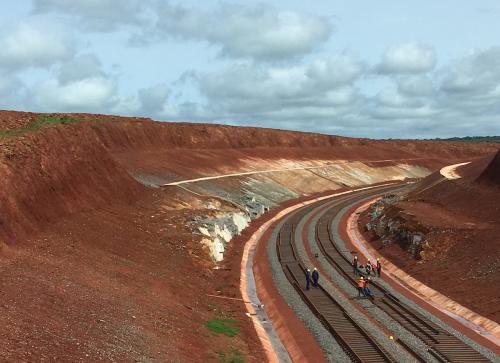Risk of Ebola spreading in West Africa grows
World Health Organization (WHO) officials warned of the very high risk of the current Ebola outbreak in Guinea spreading to its neighbors, countries that officials do not consider prepared for vaccine dissemination campaigns to mitigate the outbreak. While only 18 Ebola cases have been identified so far, with four of the infected having died, this is Guinea’s first resurgence of Ebola since the 2013-2016 outbreak that spread to other West African nations and resulted in the death of more than 11,300 people.
The WHO sent more than 11,000 Ebola vaccines to Guinea, with 1,604 people having been inoculated as of March 5. WHO officials conducted assessments of Guinea’s six neighboring countries’ preparedness to address an Ebola outbreak with vaccination drives and found only three are prepared. The report does not disclose which countries were prepared or unprepared. However, while logistical challenges exist, such as the need for ultra-cold storage for the vaccine, these neighboring countries have agreed on cross-border coordination and cooperation to bolster the region’s preparedness.
According to the Africa Centers for Disease Control and Prevention (Africa CDC), reliance on foreign entities to research, develop, and manufacture vaccines may hinder the rate of inoculation. The director of Africa CDC, John Nkengasong, recently stated that at least five nations in Africa have the capacity to produce vaccines, specifically citing Egypt, Morocco, South Africa, Tunisia, and Senegal, and referenced planned meetings with the African Union in early April 2021 to produce a road map for developing the capacity to eventually produce COVID-19 vaccines in Africa.
South Africa economic update: Economic growth, sustainability disadvantage, and record investment
Nasdaq reports South Africa’s GDP experienced 6.3 percent quarter-on-quarter growth in the fourth quarter of 2020, following a in the third quarter relative to the second quarter. The country weathered a 7 percent contraction in GDP in 2020.
New European Union legislation, the Sustainable Finance Disclosure Regulation, prompts European asset managers to classify their funds based on whether their investments are aligned with achieving net-zero global carbon emissions by 2050. Given South Africa’s carbon-intensive economy—based on its composition of energy-intensive industries, such as mining, and its reliance on coal to produce electricity, the source of approximately 90 percent of the country’s power—experts predict that this new EU legislation will raise already high borrowing costs for the country.
Despite the COVID-19 pandemic’s battering of the global economy, leading to record unemployment in South Africa, South Africans have invested more in 2020 than in any year since 1965. The country’s investment industry saw net annual inflows of $13.8 billion last year. Bloomberg commentators suggest this investment influx may have been due to retrenched workers looking for outlets to save their compensation payouts and higher-than-normal savings.
Politics update in Côte d’Ivoire, Libya, and Ethiopia
Côte d’Ivoire Prime Minister Hamed Bakayoko died from cancer on Wednesday, according to the government. Bakayoko, 56, passed away in Freiburg, Germany, where he had been receiving medical treatment. Bakayoko is the second sitting Ivorian prime minister to pass away in eight months: Amadou Gon Coulibaly, who had been named the ruling party’s presidential candidate in last October’s election, passed away at the age of 61 last July. The news of Bakayoko’s passing came one day after it was announced that his ruling party won a majority in the country’s recent legislative elections.
Also this week, the Libyan parliament confirmed the appointment of an interim government led by Prime Minister Abdul Hamid Dbeibah. The appointment is the culmination of months of United Nations-led talks to hold elections for a transitional government. United Nations Secretary-General António Guterres called the confirmation “an important step towards restoring unity, stability, security and prosperity in Libya.”
A senior Ethiopian diplomat on mission to the United States resigned on Wednesday in protest of the present conflict in the Ethiopian region of Tigray. The diplomat, Deputy Chief of Mission Berhane Kidanemariam, wrote in an open letter, “I resign from my post in protest of the genocidal war in Tigray, and in protest of all the oppression and destruction the government is inflicting on the rest of Ethiopia.” Berhane was formerly a central committee member of the Tigray People’s Liberation Front party, but was expelled in 2018.




Commentary
Africa in the News: Risk of Ebola outbreak grows, South African economy rebounds, and politics update
March 13, 2021